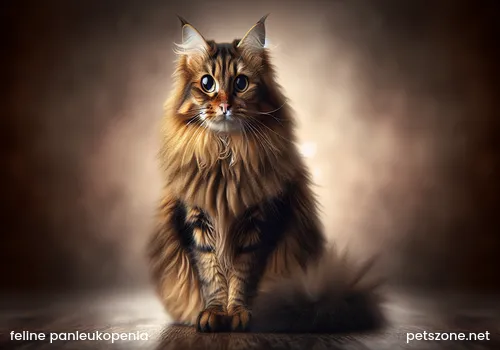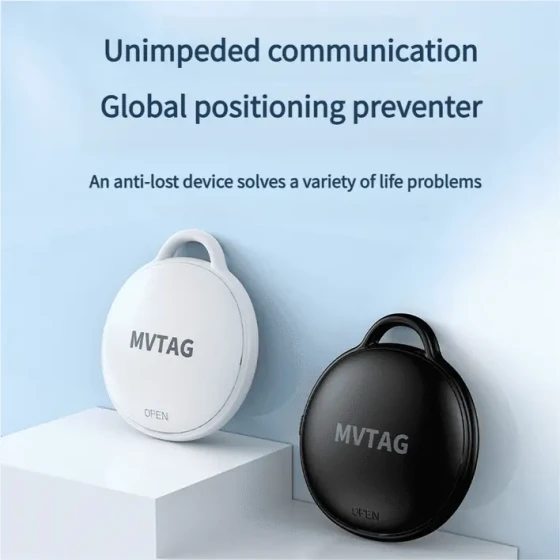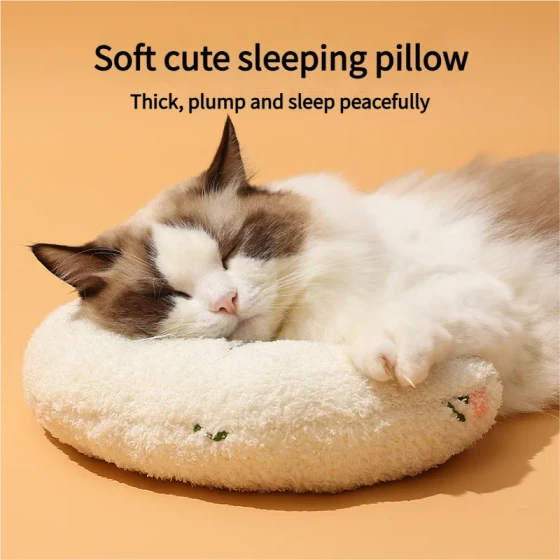Folk Remedies for Treating Feline Panleukopenia_Do These Folk Remedies Really Work
Feline panleukopenia, a word that makes all “cat owners” dread, is like the "big boss" in the cat world; once it comes, it often means a tough battle. This disease caused by feline parvovirus (FPV) is highly contagious, especially fatal to kittens, with mortality rates sometimes exceeding 90%. Even adult cats have a mortality rate between 50%-70% after infection. Facing the rampant feline panleukopenia, many anxious owners search everywhere for treatment methods. Besides formal veterinary treatment, various “folk remedies” and “home methods” circulate online and among the public. So, do these methods really work? Are they a lifesaving straw or a pitfall delaying the illness?
Key point: The most crucial thing in dealing with feline panleukopenia is to promptly take your cat to receive professional treatment. Although some “folk remedies” circulate in the community, they lack scientific evidence and may delay the optimal treatment timing for cats or even worsen the condition. Vaccination is the most effective and reliable way to prevent feline panleukopenia.
What is feline panleukopenia? Why is it so terrifying?

Feline panleukopenia, scientifically known as feline panleukopenia syndrome, is a highly contagious viral disease caused by feline parvovirus (Feline Parvovirus, FPV). This virus is very “stubborn,” capable of surviving in the environment for several months or even longer, and common disinfectants usually can’t completely eliminate it (84 disinfectant diluted and soaked for 10 minutes can effectively kill the virus).
After infection with the feline panleukopenia virus, the virus mainly attacks a cat’s digestive tract, bone marrow, and immune system, causing a sharp decline in white blood cell count, plunging immunity to the bottom, making secondary bacterial infections very easy, like “when it rains, it pours.”
What are common symptoms of feline panleukopenia?
The incubation period is usually 2-9 days, and symptoms often develop rapidly after onset. If your cat shows these symptoms, be highly alert:
- Fever: Body temperature may soar to 40°C or even higher; sometimes recurrent fever occurs, like riding a “roller coaster.”
- Lethargy, lack of activity: Becomes listless and uninterested in everything, even ignoring favorite cat toys.
- Anorexia, refusal to eat or drink: Appetite greatly reduced or complete refusal of food and water, causing rapid dehydration and malnutrition.
- Vomiting: Frequent vomiting; vomit may be yellow-green liquid, heartbreaking to see.
- Diarrhea: Severe diarrhea; stools may carry a fishy odor or even blood, further worsening dehydration.
- Dehydration: Due to refusal to eat/drink and severe vomiting/diarrhea, dehydration symptoms appear rapidly; skin loses elasticity.
- Weight loss: Loss of appetite combined with vomiting and diarrhea causes quick weight decline.
Especially in kittens, whose immune systems are not yet mature, the disease progresses faster and may cause death within 24 hours after symptoms appear, so once abnormalities are found, every second counts.
Are the “folk remedies” and “home methods” for treating feline panleukopenia really effective?
In times or areas with less advanced pet medical care, various “folk remedies” and “home methods” for treating feline panleukopenia have indeed circulated, such as forcing ginger soup, feeding isatis root tea to cats, etc. These methods sound somewhat “credible” since many are borrowed from human medical treatments, but their effectiveness in cats is very questionable.
Why is it not recommended to use “folk remedies”?
- Lack of scientific basis: Most folk remedies have not undergone rigorous scientific validation; their efficacy and safety cannot be guaranteed.
- Unclear ingredients or unsuitable for cats: Some remedies may contain substances harmful to cats, causing discomfort at least or poisoning at worst. Cats' physiology and metabolism differ from humans; many drugs or methods effective in humans might be contraindicated for cats.
- Delays optimal treatment timing: Feline panleukopenia progresses very fast, especially in kittens. Relying on “folk remedies” may miss the best chance for professional hospital treatment, worsening the condition and increasing treatment difficulty and mortality risk.
- May worsen the condition: For example, force-feeding or force-medicating when a cat is vomiting heavily might cause aspiration and pneumonia, exacerbating the situation.
Although some folk experiences may claim “good” effects, it is likely coincidental or due to the cat's own strong immunity allowing natural improvement. Currently, no specific antiviral drug exists for feline panleukopenia; formal treatment is mainly supportive to help cats resist the virus, not relying on so-called “folk remedies.”
Scientific approach to feline panleukopenia: timely medical care is essential
When facing feline panleukopenia, the most correct and reliable approach is to immediately take your cat to a reputable veterinary hospital. Vets diagnose through detailed history taking, clinical examination, and lab tests (such as feline panleukopenia test strips, blood routine tests where white blood cells sharply decrease).
Professional medical methods include:
- Fluid therapy: A critical part of treating feline panleukopenia. The disease causes severe dehydration and electrolyte imbalance; intravenous infusion promptly replenishes fluids, electrolytes, and nutrition to maintain vital signs.
- Antibiotics: Because feline panleukopenia severely suppresses immunity, leading to secondary bacterial infections, vets use antibiotics to prevent and control infections and stop disease worsening, commonly gentamicin, ampicillin, etc.
- Anti-vomiting and anti-diarrhea drugs: Help alleviate vomiting and diarrhea symptoms, reducing fluid loss.
- High-immunity serum or monoclonal antibodies for feline panleukopenia: High-immunity serum contains antibodies against the virus and can help cats resist the virus to some extent. However, it shouldn’t be injected continuously for many days. Recently, monoclonal antibodies targeting feline parvovirus show potential in research, although not yet officially tested in cats.
- Nutritional support: Cats with poor appetite may require feeding through nasal or gastric tubes with liquid food to ensure adequate nutrition against the disease.
- Other supportive treatments: Including keeping warm, supplementing B vitamins, using interferons to enhance immunity, etc.
Professional medical care is undoubtedly the most important guarantee for cats to overcome feline panleukopenia. Many cats gradually recover their white blood cell count and improve their mental state after active treatment, eventually making a full recovery. So never delay treatment time for your cat by believing in “folk remedies.”
Prevention is better than cure: Vaccines are the “guardian angels”
Just like many infectious diseases in humans can be prevented through vaccination, feline panleukopenia can also be effectively prevented via vaccines. The feline triple vaccine is one of the core vaccines, protecting against feline panleukopenia, feline viral rhinotracheitis, and feline calicivirus, three common infectious diseases in cats.
Vaccination tips:
- Timely vaccination: Kittens usually require multiple vaccine doses according to the vet’s recommended immunization schedule. Generally, kittens get a dose of the triple vaccine at 8, 12, and 16 weeks of age, followed by booster shots.
- Regular boosters: Adult cats also need periodic booster vaccinations to maintain immunity.
- Indoor cats also need vaccines: Many think cats that never go outside won’t get infected. In fact, the feline panleukopenia virus is very persistent and can be brought home on shoes, clothes, and other objects, so even indoor cats are recommended to receive vaccines on schedule.
Besides vaccines, maintaining good hygiene habits is also important. Frequent handwashing, regular cleaning of the cat’s living environment and items using effective disinfectants (such as diluted 84 disinfectant), and avoiding contact with potentially infected cats significantly reduce infection risks.
Care during recovery period
If a cat fortunately overcomes feline panleukopenia, care during the recovery period is also crucial.
- Isolation: Although recovered, cats may still shed the virus for some time, so continuing to isolate them from other cats is recommended.
- Provide easily digestible food: Early post-recovery, the digestive system may still be weak; give nutritious and easily digestible food, such as prescription food or homemade nutritional porridge.
- Small frequent meals: Avoid feeding too much at once; feed several small meals a day.
- Probiotic supplementation: Antibiotics used during treatment may disrupt intestinal flora balance; appropriately supplement probiotics to regulate bowel function.
- Provide a warm and quiet environment: Allow the cat to rest well and avoid stress.
- Regular rechecks: Follow the vet’s instructions for follow-up visits to monitor recovery.
Frequently Asked Questions
- Can feline panleukopenia infect humans? Feline panleukopenia is a cat-specific disease and cannot infect humans, so cat owners need not worry about catching it.
- Is the death rate of feline panleukopenia high? The mortality rate is very high, especially in kittens, where it can exceed 90%. Adult cats’ mortality rate is relatively lower but still high if untreated timely.
- Can feline panleukopenia be cured? It can be cured but requires timely and professional medical intervention through supportive therapy helping cats pass the critical phase and relying on their immunity to clear the virus.
- Is the vaccine effective in preventing feline panleukopenia? The vaccine is the most effective way to prevent feline panleukopenia; vaccinated cats have a greatly reduced chance of infection.
In summary, feline panleukopenia is an extremely dangerous disease that must never be taken lightly. Rather than hoping for unreliable “folk remedies,” trust science and promptly take your cat to a professional veterinary hospital for treatment, cooperating with vets. At the same time, regular vaccination is the best method to protect cats from feline panleukopenia. Remember, you are the “superhero” in your cat’s world, guarding their healthy growth with scientific love!



